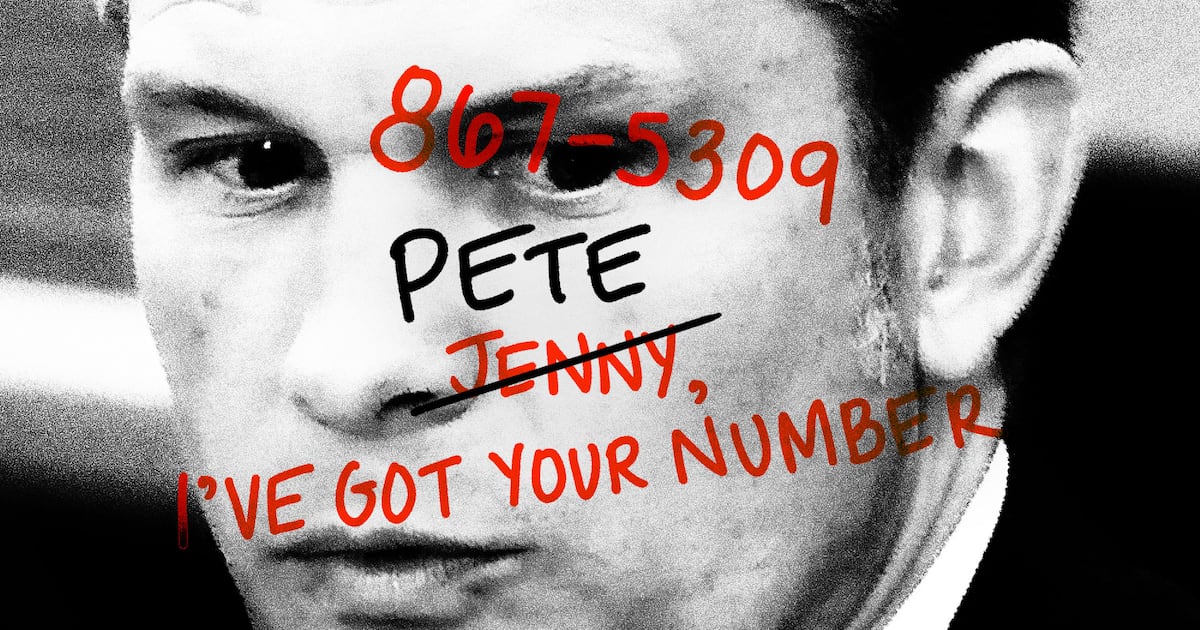When alpine skier Lindsey Vonn finished her final downhill run in Pyeongchang, the three-time Olympic medalist broke down in tears. “I wish I could keep going, you know? I have so much fun. I love what I do. My body just can’t, probably can’t take another four years,” she told NBC.
That Vonn was experiencing a range of emotions shouldn’t be surprising, but sports psychologist Jonathan Fader, PhD, author of Life as Sport, told The Daily Beast that to fans, it often is.
“I think people misunderstand athletes in the sense that they assume athletes shouldn’t respond to things like people, that they should go to the Olympics and be like, 'This is awesome,'” he said. “But it’s really dramatic when you’re an Olympian and you’re training and then all you all of a sudden feel like you are and have nothing.”
Post-Olympics depression does not discriminate. It can touch any athlete, no matter the age, sport or level of success. Even Michael Phelps, America’s most-decorated Olympian, has been open about his post-Olympics mental state, saying that he’s fallen into “a major state of depression” after every Olympics,” even contemplating suicide.
Nicole Detling, PhD, a sports psychologist at the University of Utah who works with Olympians and runs HeadStrong Consulting, told The Daily Beast that it’s important to note that these post-Olympics emotions are not necessarily a clinical depression where athletes are being diagnosed with a depressive disorder. She prefers to call it a "slump," acknowledging that it’s a very real phenomenon that can easily be explained by the chemicals in athletes’ brains.
“During the Olympics, you’re getting surges of dopamine and serotonin and endorphins—the happy hormones—and you’re on a biochemical high, and it feels amazing and then comes the period where it’s all over,” she said.
It’s not just athletes who experience this slump either. Detling said it affects staff members and coaches and athletic trainers and dieticians.
“Every athlete goes through it, the degree to which they go through it is different but everybody experiences it to some degree or another, even coaches and staff,” she said. “And we’re used to this high that we’re just not getting anymore, and that’s why it feels like a depression, like this extreme overwhelming sadness to some people, because they’re not getting those chemicals anymore, and it’s a very addicting process, so everybody wants to go back.”
Some athletes get that chance to go back, like Kami Craig, a two-time Olympic gold medalist and one-time silver medalist for USA Water Polo, who competed in three Olympic games—Beijing, London and Rio—and now works in sales in Long Beach, California. Craig told The Daily Beast that she went right to college after her first Olympics and had something new to focus on immediately, but after 2012 and 2016, things felt different.
“You get a lot of attention leading up to the games and then you come home and you open your apartment door and you walk in and there’s nothing or no one and it’s a total drastic change,” she said. “I didn’t have a coach telling me what to do every day. I didn’t have that support with the team, and pretty much everything that you have found comfort in is being challenged.”
The United States Olympic Committee piloted a program called Pivot in 2016, designed to help athletes “discover and cultivate their next passions and goals as they transition out of elite competition.”
Elana Meyers Taylor, a USA bobsled bronze and silver-medalist who most recently won silver in PyeongChang, tweeted about the program just as the games were ending. Pivot is explained as a one-and-a-half day-long workshop with 24 athletes that focuses on things like normalizing transition and finding a career. After the workshop, athletes have virtual meetings with each other and mentors for up to a year. Craig, who participated in the Pivot program, said it’s an excellent resource but that one size doesn’t fit all.
“I’m glad I had the support there, but we’re all at different places after our retirement and it’s hard to serve everyone’s needs within one program,” she said.
Samantha Peszek, an American gymnast and silver medalist who competed at the 2008 games in Beijing, is now working for the PAC 12 Network in Santa Monica and running workshops for young gymnasts. Peszek, who was 16 when she competed in the Olympics, told The Daily Beast she’d never heard of the Pivot program and that she’s wary of how well it’d work for young athletes.
Bridget Sloan, a teammate of Peszek’s who also won silver in Beijing with the USA gymnastics team, told The Daily Beast she wasn’t necessarily sad after the Olympics but did feel a sense of panic.
“After the Olympic games, my mom and dad and I were sitting at the table and my dad was, like, what’s next?” she said. “I was 16. I wasn’t going to retire.”
Sloan went on to win all-around gold in the 2009 World Championships and later became a star collegiate athlete for the University of Florida. She’s now working in sales in Orlando, Florida and works for the SEC Network during gymnastics season.
Peszek said she had never thought of life after the Olympics. So when she got home from Beijing and went right back to high school, everything felt off.
“I had always been optimistic and I’d never felt like that before,” she said. “I’d go home from school and sit and just feel like I was so lost.”
It wasn’t until she was at The White House with fellow Olympians, where everyone was talking about life after the games that she knew she wasn’t alone.
“I felt weird and felt sad but I didn’t say anything to anyone because I didn’t know it was a thing,” she said. “I remember when it came up with swimmers I knew, I felt like, 'Oh, good, I’m not alone.'”
Understanding they’re not alone is key for the athletes to get through their emotions, Detling said. Though Detling doesn’t work with Vonn (and has never met her), she said that the video of the skier crying after her final run seemed like a genuine example of what could help others.
“I loved that she put that out there and was real and honest and I think that will help other athletes to say, 'If Lindsey is experiencing that then I’m not alone,'” Detling said. “The more they can recognize it’s a normal process to go through, the easier it is.”





